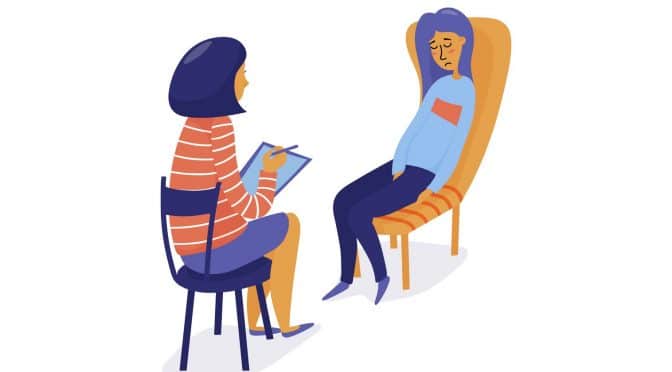What to Expect When Going To the Best Psychologist in Delhi for Counseling
What to Expect When Going To the Best Psychologist in Delhi for Counseling
Blog Article
Psych Therapy: A Comprehensive Guide to Strategies and End Results

Cognitive-Behavioral Therapy
Cognitive-Behavioral Therapy (CBT) is an extensively made use of psychotherapeutic technique that concentrates on identifying and customizing dysfunctional reasoning and habits patterns. Developed in the 1960s by Aaron T. Beck, CBT incorporates cognitive and behavioral theories to attend to different psychological health and wellness concerns, consisting of anxiety, stress and anxiety, and stress-related conditions. The facility of CBT is that maladaptive thoughts add to emotional distress and maladaptive habits. By restructuring these ideas, individuals can accomplish significant enhancements in their emotional well-being and day-to-day performance.
CBT is identified by its organized, goal-oriented nature. Therapy typically includes a joint process in between the specialist and customer, where particular issues are determined, and functional methods are developed to resolve them. Strategies such as cognitive restructuring, direct exposure treatment, and skill-building exercises are frequently used. Cognitive restructuring involves difficult and changing unfavorable thought patterns, while direct exposure treatment intends to decrease fear and anxiousness via gradual direct exposure to feared objects or situations.
Evidence-based study supports the effectiveness of CBT for a wide variety of psychological disorders - Best Psychologist in Delhi. Its emphasis on skill acquisition and self-help techniques encourages clients to continue progression independently after treatment concludes. The versatility and efficiency of CBT have made it a keystone in contemporary psychotherapeutic method
Psychodynamic Strategies
Rooted in the very early concepts of Sigmund Freud, psychodynamic approaches concentrate on exploring the unconscious mind and its impact on behavior and feelings. These approaches aim to reveal hidden thoughts and feelings that may be driving maladaptive actions and emotional distress. Central to this technique is the principle of internal problem, commonly stemming from unresolved past experiences, particularly those from childhood.
Therapists making use of psychodynamic strategies utilize numerous essential methods, including complimentary organization, where people are encouraged to speak freely to reveal subconscious material, and dream analysis, which translates the latent material of desires. Additionally, the exploration of transfer and countertransference characteristics within the restorative partnership is vital. These communications can give understandings right into the individual's interior globe and relational patterns.
Psychodynamic therapy is commonly longer-term compared to other techniques, using a thorough and deep understanding of the individual's mind. Study suggests that it can be specifically reliable for complex psychological health and wellness concerns, such as individuality problems and persistent clinical depression. By fostering self-awareness and emotional understanding, psychodynamic treatment looks for to bring subconscious material to awareness, enabling people to achieve meaningful and long lasting adjustment in their lives.
Humanistic Methods
Building on the structures laid by psychodynamic techniques, humanistic strategies use a distinctive perspective focused on specific prospective and self-actualization. Coming from the mid-20th century, these techniques focus on the integral goodness and growth potential of people, emphasizing a holistic sight of human experience. Key figures such as Carl Rogers and Abraham Maslow have considerably affected this healing approach, which includes techniques like client-centered therapy and Gestalt therapy.
Client-centered treatment, developed by Rogers, plays an essential duty in humanistic strategies. It relies upon the specialist visit the website providing a setting of unconditional favorable respect, empathy, and harmony. This fosters a risk-free space for clients to explore their feelings and experiences without judgment, helping with self-discovery and individual growth. The specialist's duty is more of a facilitator than an authority, motivating customers to harness their inner resources for recovery.
Gestalt therapy, one more essential humanistic strategy, emphasizes present moment understanding and the combination of body and mind. By concentrating on the "present moment," clients get higher insight right into their existing feelings and actions. Techniques such as role-playing and assisted visualization are usually used to help clients obtain a deeper understanding of themselves, inevitably bring about enhanced self-awareness and satisfaction.
Integrative Therapies
Integrative therapies represent a synthesis of different healing methods tailored to satisfy the unique requirements of each customer. This strategy recognizes the intricacy of human psychology and the multifaceted nature of psychological health issues. By integrating aspects from various institutions of psychotherapy-- such as cognitive-behavioral treatment (CBT), psychodynamic therapy, and humanistic approaches-- integrative treatments provide a more all natural and versatile treatment paradigm.
Practitioners of integrative therapy examine each client's certain needs, signs, and personal background to create a personalized treatment plan. This individualized strategy boosts the capacity for healing success by addressing the root causes of psychological distress and advertising overall well-being. Strategies could include mindfulness exercises, cognitive restructuring, and emotional processing, each chosen to target different facets of the client's issues.
Moreover, integrative therapies stress the restorative relationship, seeing the client-therapist bond as a vital component of reliable therapy. This partnership promotes a helpful atmosphere where customers feel risk-free to explore and address their concerns. The versatility of integrative treatments makes them appropriate for a broad variety of problems, consisting of anxiety, anxiety, trauma, and interpersonal problems, thereby enhancing their applicability and efficiency in diverse professional settings.

Measuring Therapy End Results
Examining the efficiency of psychotherapy is vital for both medical professionals and customers to ensure that the therapy is yielding the wanted end results. To attain this, numerous approaches and tools are utilized to gauge therapy outcomes methodically. Standardized analysis instruments, such as the Beck Clinical Depression Inventory (BDI) and the Generalized Stress And Anxiety Condition 7 (GAD-7), supply measurable data on symptom severity and adjustments gradually.
In enhancement to standard devices, qualitative methods like customer self-reports and medical interviews Read Full Article offer beneficial insights into the personal experiences and viewed development of customers. On a regular basis scheduled assessments, typically at the start, axis, and end of therapy, assistance in tracking the trajectory of enhancement or determining areas requiring modification.
Result dimension is not limited to sign reduction; it likewise incorporates practical renovations in every day life, such as far better social relationships, increased job performance, and enhanced total wellness. Modern developments in electronic health and wellness have introduced mobile apps and online platforms that help with real-time monitoring and responses, additionally refining the analysis process.
Eventually, a comprehensive technique to determining therapy end results makes certain that restorative interventions work, reliable, and tailored to meet the private requirements of clients, thereby enhancing the total therapeutic experience.
Conclusion
Humanistic strategies concentrate on individual development and self-actualization, while integrative treatments integrate several approaches for customized therapy strategies. Examining therapy outcomes through standard analyses and qualitative techniques guarantees a thorough understanding of performance, inevitably leading customers toward sustaining psychological wellness improvements.
From the structured technique of Cognitive-Behavioral Therapy (CBT) to the deep exploration of the published here unconscious in psychodynamic treatment, each technique brings unique benefits. Its focus on skill acquisition and self-help techniques equips clients to proceed progression independently after treatment wraps up (Best Psychologist in Delhi). Key figures such as Carl Rogers and Abraham Maslow have considerably affected this healing technique, which encompasses approaches like client-centered treatment and Gestalt treatment

Report this page